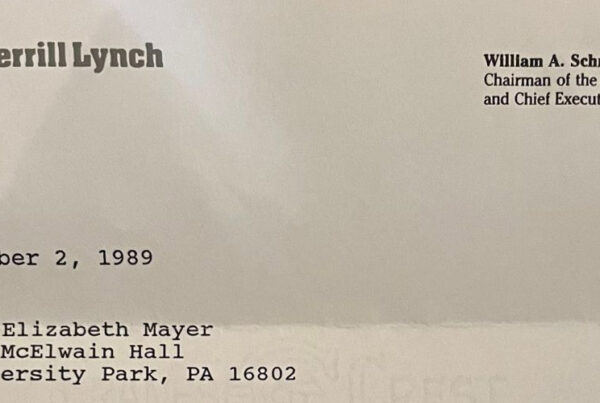
Article Summary: Everyone is a storyteller. You are a storyteller. You tell personal and professional stories every day. Whether you direct an international association, manage a government program, run a small business, or serve as the CEO of a Fortune 500 company, consider every written, verbal, and social media communication as a business story. You need to inspire others around you to achieve your goals. The greatest bonding and trust-building tools we have are effective stories. Use these three tips to help you leverage your skills as a storyteller to generate results from your various career activities. [This article was originally written for the American Marketing Association Executive Circle]
THE PERSONAL STORYTELLER – 3 TIPS TO IMPROVE YOUR COMMUNICATION SKILLS
Copyright © 2011. The Chief Storyteller ®, LLC.
Ira J. Koretsky
March 2011
Everyone is a storyteller. You are a storyteller. You tell personal and professional stories every day. You tell them to friends, colleagues, family members, and even to strangers you meet while waiting in line at the grocery store.
Whether you direct an international association, manage a government program, run a small business, or serve as the CEO of a Fortune 500 company, consider every written, verbal, and social media communication as a business story.
Storytelling is the oldest, most effective form of communication. That’s why stories are in everything we do and say as professionals. Examples include your elevator pitch (your answer to “What Do You Do?”), presentations, proposals, emails, website, success stories, testimonials, and social media content. A subcategory is career stories. Examples include your cover letter, resume, testimonials, recommendations, answer to “Tell me about yourself,” and accomplishments.
By reaching your audience’s heart and mind, you access the part of them that wants to believe in what you have to offer. You need to inspire others around you to achieve your goals. The greatest bonding and trust-building tools we have are effective stories.
As you tell your various career stories, consider the three major reasons people share them in a business context:
- Inspire action, change, or new ways of thinking
- Bridge gaps (e.g., culture, generation, gender, and understanding)
- Build a shared vision of a better future
Use these tips to help you leverage your skills as a storyteller to generate results from your various career activities.
1. HAVE A CLEAR BEGINNING, MIDDLE, AND END
Follow a story structure. While there is no absolutely right way to tell a story, personal stories are frequently shared more for entertainment and enjoyment than for a specific business objective. For this reason, look at business stories a little differently.
One of the most important differences is the need to use structure. People want to know your story is going “somewhere” and it will make a point. Use the classic storytelling convention of beginning, middle, and end. It’s familiar and time-tested.
2. TELL YOUR STORY WITH A SPECIFIC MESSAGE IN MIND
Ensure your story has one clear message. Imagine you just finished telling your story. What do you want your reader or listener to learn, do differently, or think about? Do not assume your audience will know what to do with your story or message. You have to tell them in a manner that resonates quickly.
A helpful way to develop a targeted message is to put it in a category. Examples include process, communication, customer service, safety, leadership, strategy, teamwork, innovation, and quality assurance. After selecting the category, apply one of the major reasons shared above (i.e., inspire action, bridge gaps, and better future). Then use relevant words and phrases from the category and important to your target audiences.
The most important message is the one contained in your answer, “Tell me about yourself” or what I like to call the elevator speech of job hunting. This is definitely a “better future” story. It sets the framework for everything else you communicate. Ensure your answer is short, on-target, and helps your audience understand that by hiring you, you are going to help them build a better future (e.g., grow the organization’s revenue, increase market awareness, and improve brand recognition).
3. MAKE THE “JOURNEY” RELEVANT
Make your story pass the “so what” test. Invite your audience into your experience by sharing the WIIFM—What’s In It For Me. Well-told stories create a shared experience. This enables them to understand your message on a personal level. Your words should crystallize common values and experiences. You have to touch someone’s heart before they’ll act.
THINK DIFFERENTLY AND THINK DELIBERATELY
With the highly competitive job market, knowing in advance what is important to your audience will be a major contributor to your success. Select the right stories, deliberately, for your audiences. Practice saying and writing your various business/career stories. Find a balance between business and emotion that works for you personally and that resonates with your audiences.
Look around and listen to the world around you. Observe the storytelling in everything. What can you do to emulate the success in the various business stories you observe in your own stories? Are you ready to share the right stories to the right audiences? And will your stories generate the right results?
Eugene Finerman in The Toastmasters, shared an excellent way of looking at stories. He said, “Every word has a story…one word can tell an epoch of history, define the attitude of an era, or reflect an ancestral sense of humor.”
Photography Source: Photos.com
#chiefstoryteller #storytelling #communication #improve



